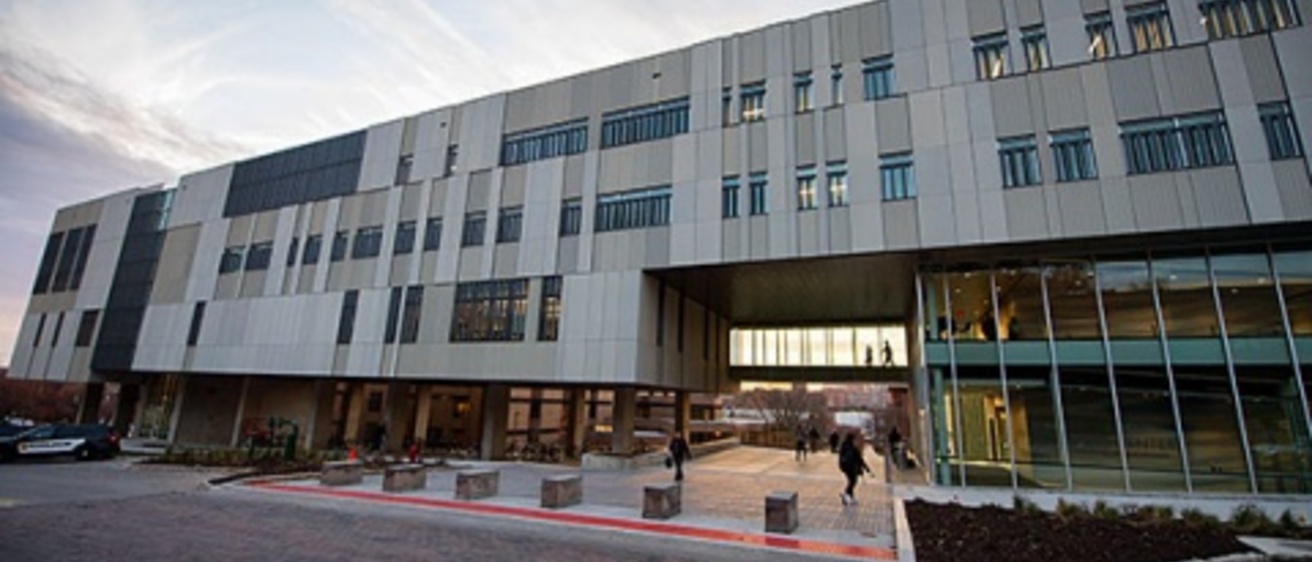Dylan Larino
Research projects at the University of Iowa College of Engineering often have the potential to revolutionize a field or even change the world. In order to accomplish this, professors often enlist the help of undergraduate researchers. Such is the case with the collaborative research of Suresh M.L. Raghavan, professor of biomedical engineering, and Syed Mubeen, assistant professor of chemical and biochemical engineering. With the help of clinical insights from Dr. Srinivasan Rajagopal, Anesthesiologist at University of Iowa Hospitals and Clinics and funding from the Office of Vice President for Research, the researchers aim to develop a more accurate way of measuring blood flowrate in the heart by looking at changes in the blood's electrochemical properties. The hope is to replace the current method of thermodilution, which uses saline to detect temperature changes in the blood and believed to be less reliable.
“I’ve been a big supporter of undergraduate research,” says Prof. Raghavan, “I’ve mentored maybe 45 to 50 undergraduate students. So I’ve had a lot of undergraduate students come through my lab. They’re an important part of research."
That importance cannot be understated as it not only benefits the project to have extra researchers working on it, but it provides a valuable educational experience for the undergraduates themselves. Profs. Raghavan and Mubeen’s undergraduate researcher, Brett Austin, for example, is working to develop the prototype apparatus for the project as well as the system for testing it. He is also being trusted with a great deal of responsibility as the outcome of his work could potentially secure additional funding for the research. In order to accomplish this, Brett’s had to significantly broaden his scientific horizons. “This is not something you find common, having electrochemical engineering for a biomedical application,” says Prof. Mubeen, “What we were trying to do was find a student who would be quick to adapt and appreciate these two fields.”
For the undergraduate researcher the ability to adapt and go beyond the call of duty is essential to success. In essence, it's an opportunity to prove oneself. To prepare for this research project, Brett has been learning and utilizing aspects of chemical engineering, nanotechnology, material science, and micro fabrication in addition to what he’s already learned thus far in the biomedical engineering major. The knowledge he’s gaining from delving into these additional fields will not only help him conquer any project related challenges that might arise, but will have plenty of value to perspective employers in the world outside of college.
“It [undergraduate research] really gives you the opportunity to see what it’s like to be an engineer instead of just an engineering student." says Brett Austin, “Like I’m trying to go to medical school, so even if I’m not going to end up being an engineer, the whole problem solving approach and practicality of everything I’ve learned doing undergrad research is applicable in every aspect of science.”
In short, this article isn't the story of one superstar researcher, but the story of the average undergraduate looking to tackle the challenges and potential rewards that undergraduate research has to offer. The fact is, at the University of Iowa College of Engineering, undergraduate research provides students with a challenging and fulfilling experience that develops marketable skills and prepares them for the real world opportunities that lie beyond college, and it's something that any engineering student who is willing to put forth the time and effort can be a part of.
